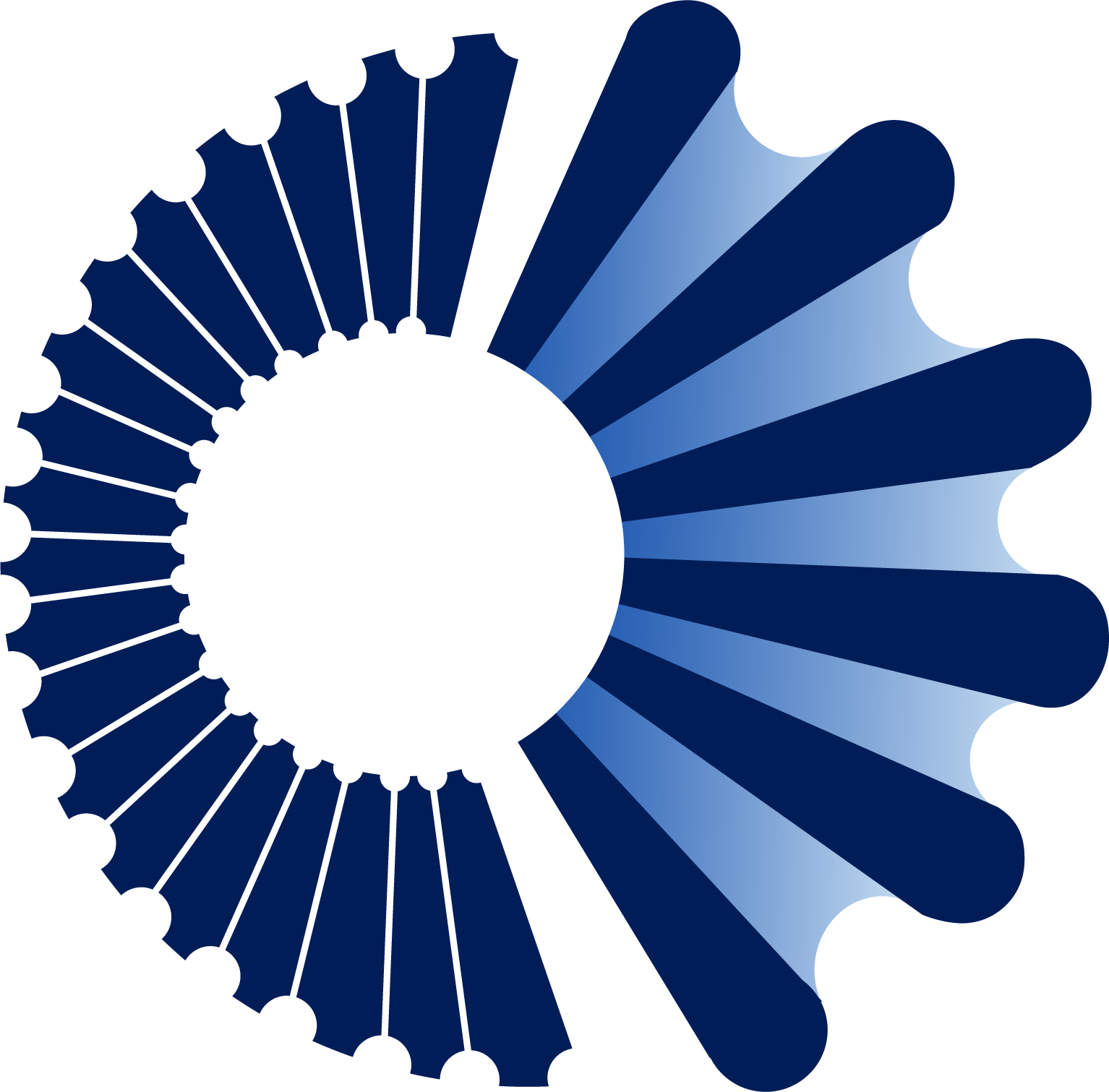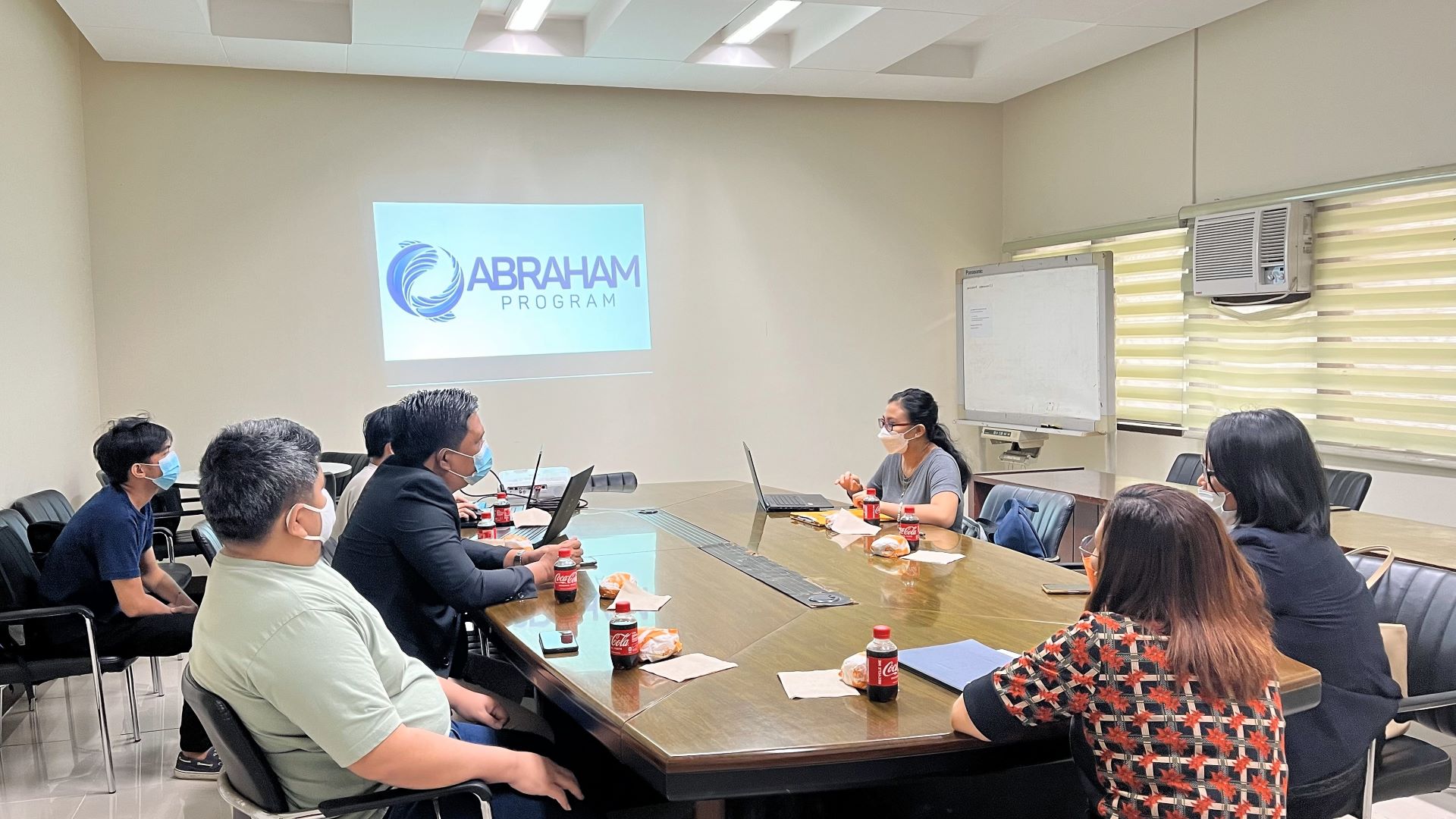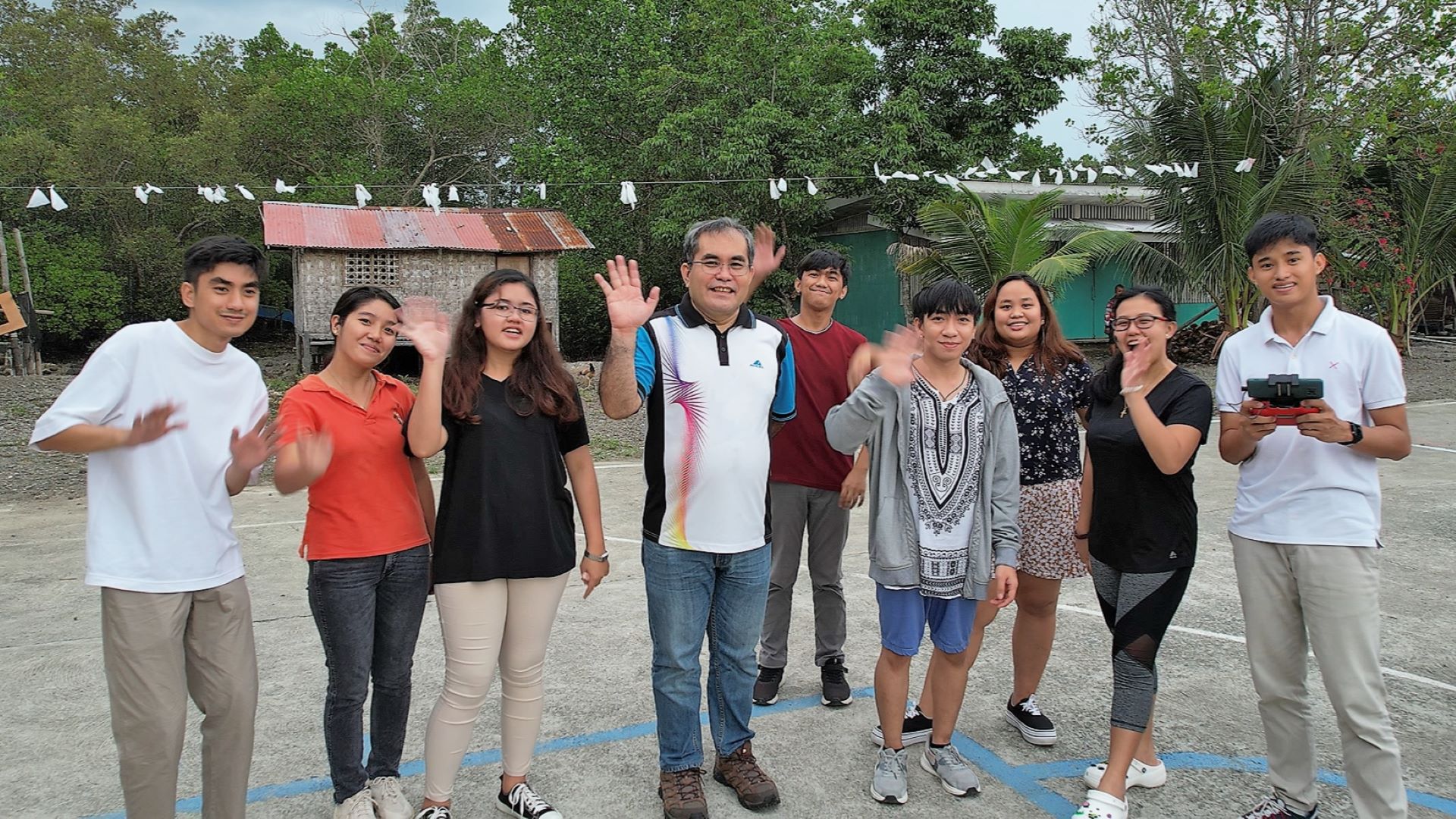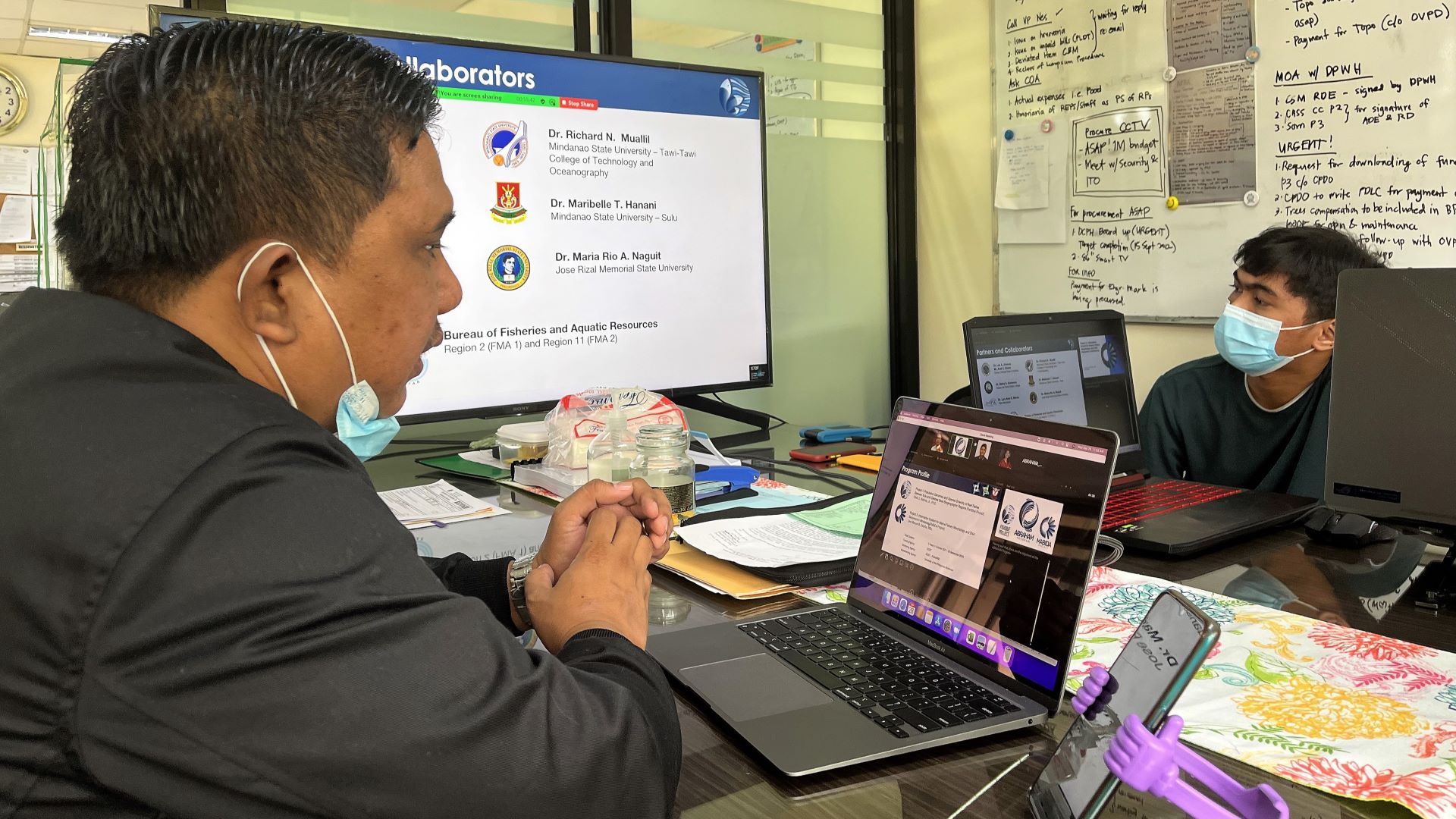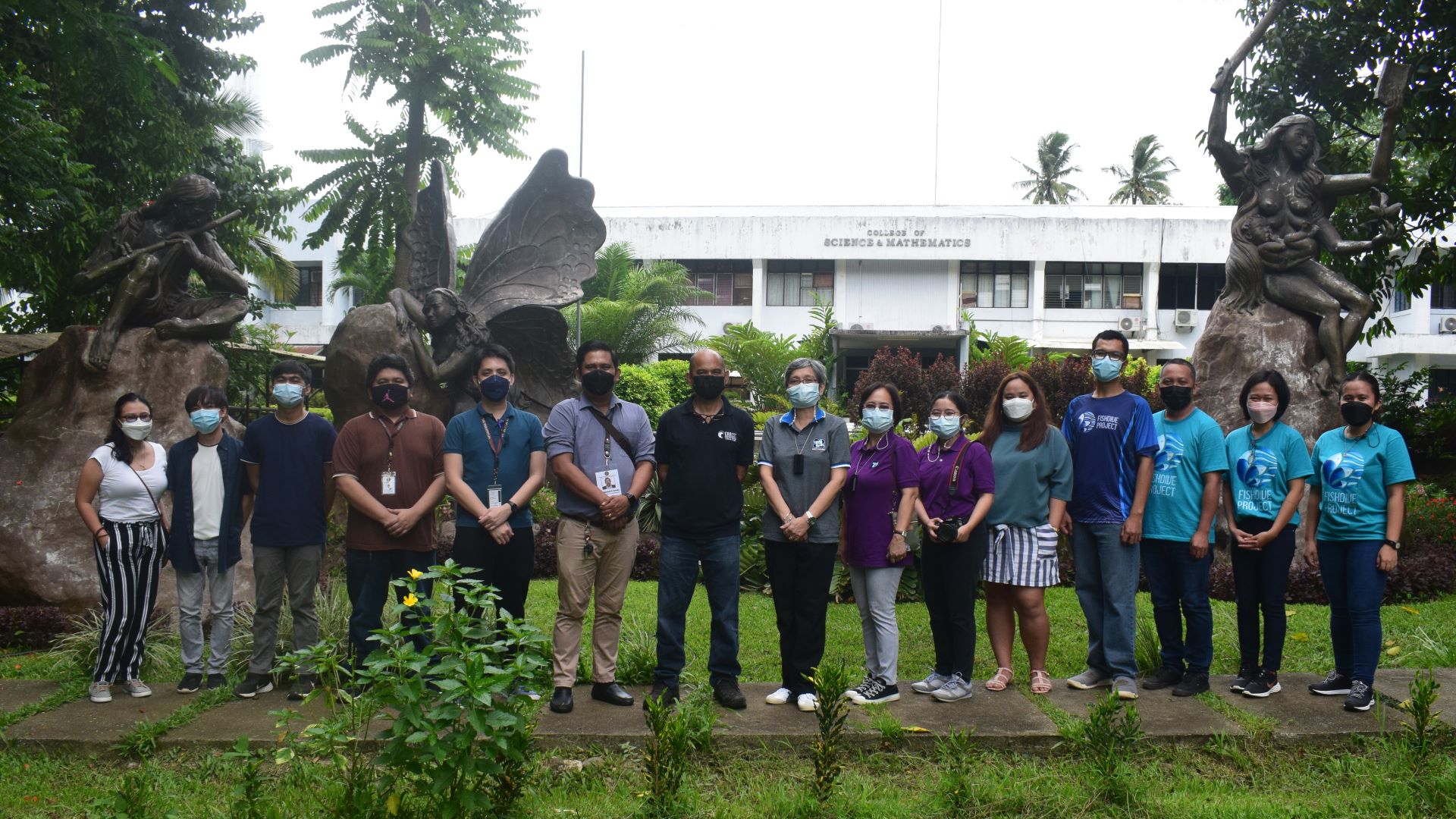
DOST-PCAARRD Heads Visit UP Mindanao to Monitor Progress of ABRAHAM Program
Written by Norjan Charls M. Cabanalan
Uploaded on May 26, 2022
The Department of Science and Technology-Philippine Council for Agriculture, Aquatic and Natural Resources Research and Development (DOST-PCAARRD) heads, Dr. Mari-Ann M. Acedera and Ma. Adela C. Corpuz, recently visited the University of the Philippines (UP) Mindanao to monitor the progress of the ABRAHAM Program.
The ABRAHAM Program, a three-year project being implemented in partnership with UP Mindanao, aims to study and understand the biodiversity of marine life in the Philippines, with a focus on Mindanao. Despite the challenges brought about by the COVID-19 pandemic, the program has made significant progress in its research and implementation.
During their visit, the DOST-PCAARRD heads were given a tour of the CRREST Laboratory where the program is being implemented. They were able to see the equipment being used in the research and the progress that has been made so far.
Dr. Acedera expressed her satisfaction with the progress of the program, commending the researchers for their dedication and hard work. She also emphasized the importance of studying marine biodiversity, particularly in the Philippines, which is home to some of the world's richest marine ecosystems.
The ABRAHAM Program is expected to contribute to the development of sustainable and science-based policies for the protection and management of marine biodiversity in the country. With the support of DOST-PCAARRD, the program aims to provide valuable insights and data that can be used to promote the conservation and preservation of the Philippines' marine resources.
The visit of the DOST-PCAARRD heads highlights the government's commitment to supporting scientific research and development in the country. Through partnerships with leading academic institutions like UP Mindanao, the government aims to drive progress and innovation that can contribute to the sustainable development of the Philippines.
